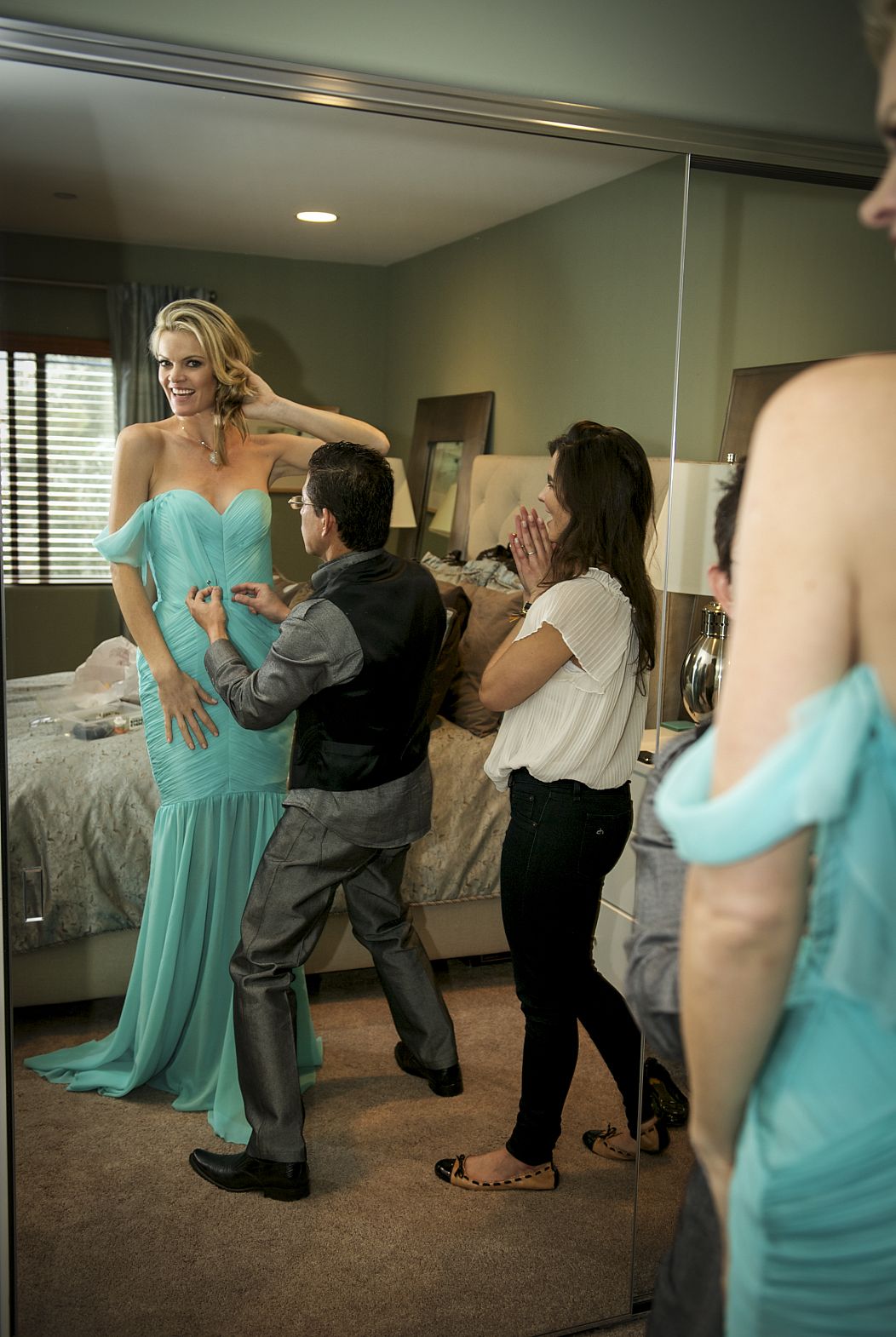"Fashion, as a word, invokes a feeling of exclusion, hostility and inaccessibility" - Samata.
Samata is the CEO of women-led organisation Red Carpet Green Dress and Founder of women's empowerment collective THE TRIBE. Here she shares her views on the power of language to facilitate understanding and inclusion.
 ADVERTISEMENT
ADVERTISEMENT
 ADVERTISEMENT
ADVERTISEMENT
The typical responses I hear after identifying myself as a ‘sustainable fashion person’ tend to be: “I’ve always wanted to go to a fashion show” or “I take myself too seriously to think about fashion - but that must be fun!”
I’ve also frequently had, “does that involve hemp?”
For anyone not working in the industry, the word fashion seems to instantly create a separation. We all wear ‘clothes’ every single day, yet so many people struggle to see their place in ‘fashion’, and remain unaware of the unspoken conversation lying beneath it.
One of my life missions is to help a global community connect the dots between this heavyweight industry which employs one in six people on the planet - and themselves.
Maslow's hierarchy of needs places clothing firmly on the essentials list, when it comes to “universal human needs”. Clothing provides dignity, warmth, protection - and, for those able to see it, a way to express identity and communicate.
Yet unbeknownst to most, how clothing is made, worn and discarded also affects our bodies, the planet and entire communities. That is where the sustainable bit comes in.
Cited as the third most polluting industry after fuel and agriculture, fashion production has racked up a catalogue of offenses, including pollution, biodiversity loss, carbon emissions, and social justice issues. If things continue as they are, the fashion industry could be using 26 per cent of the world's carbon budget by 2050. In other words, fashion would be responsible for over a quarter of the emissions we can afford to release over the next 30 years, without exceeding the 2C temperature rise.
Fashion also impacts our personal biosphere, with growing research showing that toxic dyes and synthetic materials like polyester are hazardous for our health. Human health is something that affects us all - but for some reason, masses of the population see no connection between themselves and what is referred to as ‘fashion’.
I believe that one of the root causes for this disconnect is the gap between what is being said and what people hear.
Who are eco-ghosters?
Back in 2014, I coined the phrase ‘eco-ghosters’. I used it to describe fashion designers working in sustainable ways, but who didn’t necessarily realise it. These were people who didn’t see themselves as green innovators or use any of the eco technology, but nonetheless, they were inherently sustainable.
Eco-ghosters were recycling, upcycling, creating small and local, or using fair trade in their production processes. Yet, they had never heard of a circular economy or closed loop. They just knew that waste is only waste if you waste it, and that every link in the supply chain should be valued.
Ever since, I’ve wondered if changing the words we use in the sustainability realm might help more people find themselves included.
For all of its associated glamour, fashion, as a word, invokes a feeling of exclusion, hostility and inaccessibility. These are feelings many of us working in the space, whilst being marginalised due to race, socioeconomics or gender, have felt at one time or another.
No wonder the pairing of a ‘do good word’ like sustainability and a ‘look good’ word like fashion trigger such mass confusion.
Swapping fashion for clothes
Language can bring people in, so from here on out, I will be subbing the word fashion with its friendlier, more inclusive counterpart, clothes.
Your clothes are connected with any and every topic you can think of - sustainable or otherwise, and I want to help you make that crucial link.
Let’s show the passionate student knitter the importance of darning and mending in the sustainable fashion movement. Let’s introduce the animal-loving vegan to plant-based material innovations from pineapple leaves to mushroom leather, and discuss clothing’s impact on biodiversity with the whale watchers.
The human rights activist should be empowered to ask “who made my clothes?”, only to find out about the underpaid and undervalued garment workers holding up the industry.
The astute venture capitalist might find a business case for investing in black-owned clothing brands in the face of much needed intersectionality.
During this brutal year, clothes’ ability to change how we see and feel about ourselves is searingly pertinent, it’s often referred to as 'enclothed cognition'. Find any topic uninvolved in clothing and its impact, I dare you.
I do believe people care about our planet, but we aren’t moving with enough speed or agility. Maybe our language has been too confusing or overwhelming. Whilst the industry’s eco-warriors argue over environmental definitions, those on the outside look on in frustration - often feeling judged or ignored.
Can we use language to create equal footing, to empower people to see themselves in the dialogue as clothes wearers? To be in, rather than out?
It has happened with food. Arguably today’s society has a better understanding of what organic, homegrown or fair trade food is.
Yes, sustainability has a huge inaccessibility issue, pricing so many out, but being able to do better starts with more people understanding what the problems are. Let’s not use words that oversimplify, but rather that relate to more people, using language to help us change our attitudes towards what we buy, wear and how we treat clothes afterwards.
Less fashion, more clothes I say, and I can’t say it enough.











